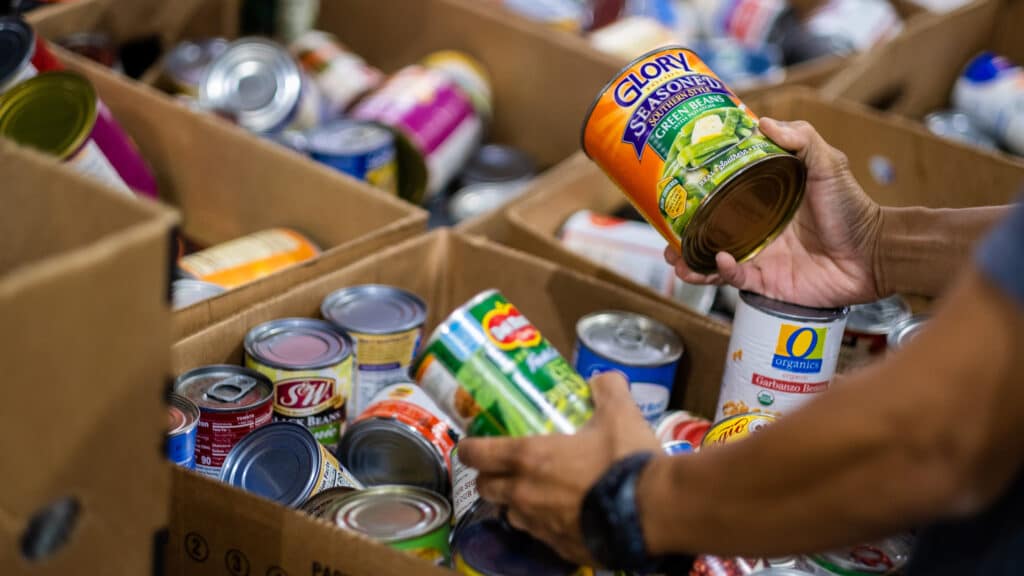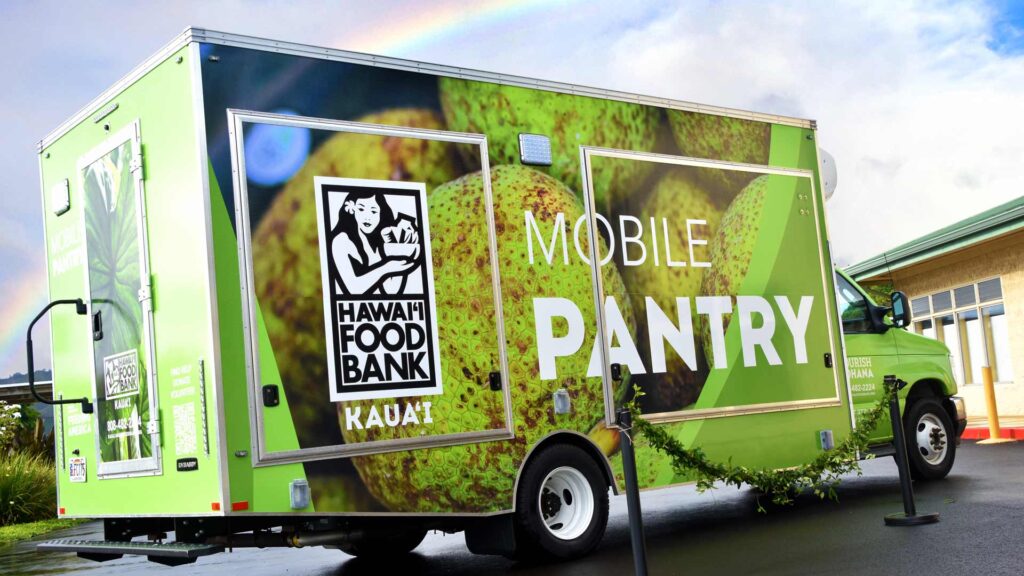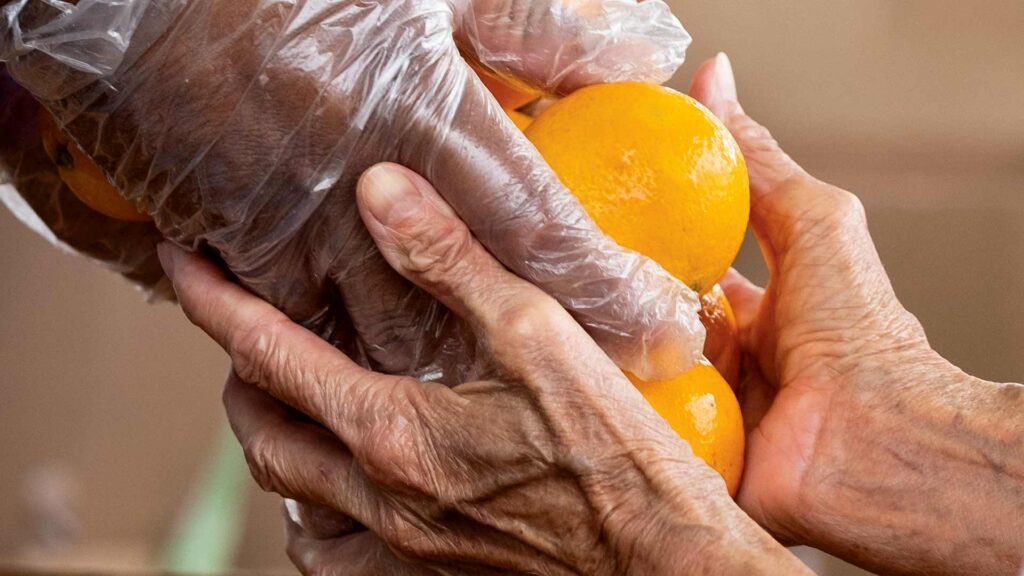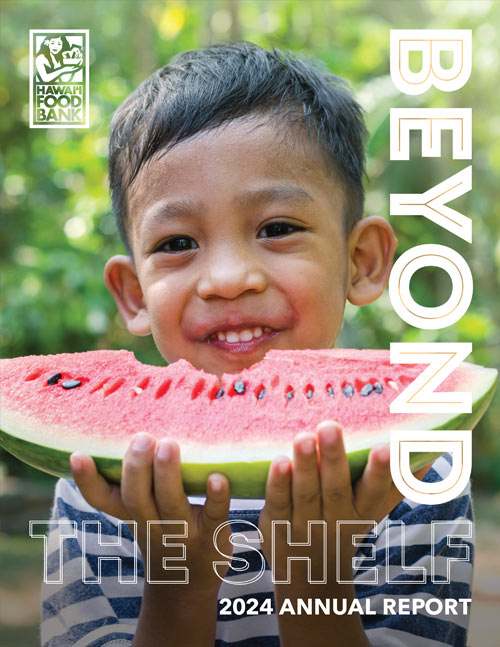The Truth About Canned Food: 3 Myths Cracked Open

Hawaii Foodbank
Fresh produce may be ideal, but canned goods offer convenience in a healthy package.
Canned foods often get a bad rap. But did you know that canned fruits and vegetables can actually be just as nutritious as fresh and frozen options – and often at a lower cost? In fact, fruits and vegetables are packaged within hours of being harvested, with minimal processing, when they’re at their freshest and most nutritious.
Canned fruits and vegetables are more energy efficient to ship and store than fresh and frozen foods that must be kept chilled.
February is National Canned Food Month, which provides the perfect opportunity to take a more candid look at the canned foods in our pantries. Let’s crack open and explore some common myths about canned foods.
- Myth: Canning foods destroys nutrients.
Fact: Canned foods can be as nutritious as their fresh or frozen counterparts. This is because they are harvested at peak ripeness and the canning process typically takes place nearby. After the food is prepared for canning, it is sealed in the can and then heated to a temperature high enough to destroy microorganisms and spores that could cause contamination. This safely preserves the food until the can is opened. - Myth: Canned foods are high in sodium and preservatives.
Fact: Most canned foods typically contain low or no sodium and often have no added preservatives. In fact, canned goods don’t even appear on the CDC’s top 10 sources of sodium list. Canned foods including vegetables, soups and meats often have sodium-free and low-sodium options available. And simply rinsing foods such as beans that may contain sodium to enhance flavor will reduce the sodium content by as much as 41%. Preservatives are not needed because the canning process heats foods to kill microbes that cause spoilage, while keeping intact vitamins, minerals, fiber and protein essential to a healthy diet. - Myth: Canning foods is wasteful and resource intensive.
Fact: Canning reduces food waste, and the the recycling rate for steel cans is 58% (according to the American Iron and Steel Institute). Canning reduces food waste at harvesting, because imperfect foods can be blanched or chopped instead of being sent to the landfill. During the canning process, food waste such as peels, cores and inedible plant matter is removed and re-used as agricultural feed or in compost. The canning process itself is more energy efficient than transporting and storing chilled produce. And up to 35% of the steel used in cans produced for food is recycled!
Canned foods can be more cost effective than fresh or frozen and boast similar nutritional value, and will last, at room temperature, for years from the date of harvest. This makes canned goods a practical means to include more fruits and vegetables in your diet. Canned beans, for example, can be a great way to add protein to a salad or soup. Canned beets, mandarin oranges, or other colorful fruits and vegetables boost the vitamin and mineral content of a salad. Adding canned broth, tomatoes, or proteins can stretch a soup or stew while increasing nutritional value. Furthermore, canned proteins such as tuna and chicken are easy to store and quick to prepare as they do not require reheating, making them excellent sources of lean protein and necessary amino acids.
Canned goods can provide an easy, practical means to include more fruits and vegetables in your diet.
Helpful tip: Store your canned goods in a cool, dark place. Temperatures over 100 degrees are harmful for canned goods an increase the risk of spoilage. Always open your cans and warm or cook canned foods separately, as not all cans are designed to be reheated and could explode or leach harmful substances into your food if exposed to high temperatures.
The shelf life of canned goods extends from one to three years past the “best by” date on the label when properly stored. Discard any cans that show signs of rust, swelling, leaking, broken seals or dents such as along seams and edges or with sharp edges.
You can download the USDA’s Food Safety and Inspection Service FoodKeeper App for more information on canned food safety.
Hawai‘i Foodbank welcomes your canned food donations. You can drop off at our warehouses on O‘ahu or Kaua‘i or at any Ruby Tuesday’s, Napa Auto Parts or Kualoa Ranch.





